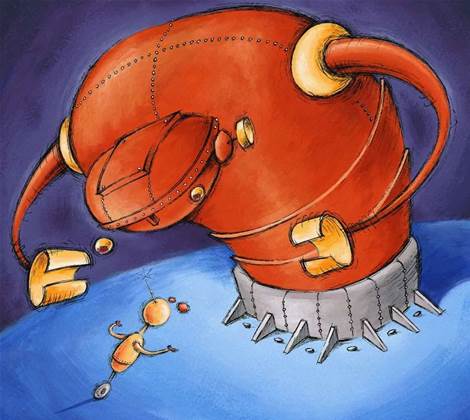
The rogue security applications disguise themselves as legitimate antivirus tools, often offering users false scans or creating pop-up windows which warn users that their systems are infected.
Believing that the security program is legitimate, the user pays money for the phony software.
"Losing $50 for a fake program is bad enough, but victims should be worrying, though, about losing much, much more," wrote Trend Micro technical communications team member Macky Cruz.
"After all, once hackers get their hands on credit card information there is no telling what risks are in store for victims."
Among the new rogue applications Trend has found is a piece of malware known as WinAntispyware 2008.
The rogue utility alters the user's desktop and system preferences to display phony alert messages and instigate fraudulent system scans in an attempt to purchase the non-functioning security tools.
New rogue security applications have also been discovered in recent days by Sunbelt Software. Among the names being used by the applications are Windows AntiVirus, Windows AntiVirus 2008, AntiVirus Lab 2009 and Antispyware Pro XP.
The US Computer Emergency Response Team (CERT) is advising users to avoid the rogue antivirus scams by only installing trusted security software from known vendors.
Users are also advised to follow general best practices such as not following unsolicitied links or downloading software from untrusted sources.


.png&h=140&w=231&c=1&s=0)
_(33).jpg&h=140&w=231&c=1&s=0)






 iTnews Executive Retreat - Security Leaders Edition
iTnews Executive Retreat - Security Leaders Edition
 Huntress + Eftsure Virtual Event -Fighting A New Frontier of Cyber-Fraud: How Leaders Can Work Together
Huntress + Eftsure Virtual Event -Fighting A New Frontier of Cyber-Fraud: How Leaders Can Work Together
 iTnews Cloud Covered Breakfast Summit
iTnews Cloud Covered Breakfast Summit
 Melbourne Cloud & Datacenter Convention 2026
Melbourne Cloud & Datacenter Convention 2026
 The 2026 iAwards
The 2026 iAwards












_(1).jpg&h=140&w=231&c=1&s=0)



